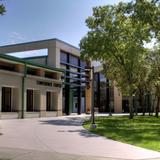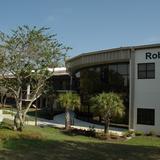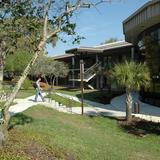School Highlights
Pasco-Hernando State College serves 11,845 students (39% of students are full-time).
The college's student:teacher ratio of 19:1 is lower than the state community college average of 20:1.
Minority enrollment is 46% of the student body (majority Hispanic), which is less than the state average of 67%.
Quick Stats (2025)
- Enrollment: 11,845 students
- In-state tuition: $3,095
- Out-state tuition: $11,792
- Student:teacher ratio: 19:1
- Minority enrollment: 46%
- Source: Integrated Postsecondary Education Data System (IPEDS)
Top Rankings
Pasco-Hernando State College ranks among the top 20% of public schools in Florida for:
Category
Attribute
Community Size
School Overview
The teacher population of 611 teachers has stayed relatively flat over five years.
Pasco-Hernando State College
(FL) Community College Avg.
Carnegie Classification
Baccalaureate/Associate's Colleges: Mixed Baccalaureate/Associate's
Not applicable, not in Carnegie universe (not accredited or nondegree-granting)
Institution Level
Four or more years
At least 2 but less than 4 years
Institution Control
Public
Private not-for-profit
Total Faculty
611 staff
139 staff
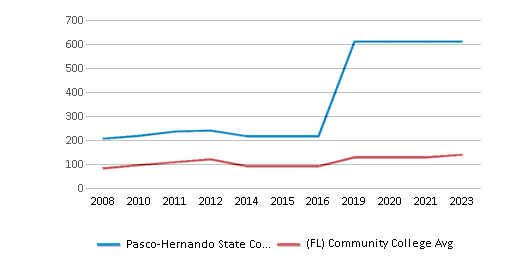
School Calendar
Student Body
The student population of Pasco-Hernando State College has stayed relatively flat over five years.
The student:teacher ratio of 19:1 has increased from 16:1 over five years.
The Pasco-Hernando State College diversity score of 0.65 is less than the state average of 0.76. The school's diversity has grown by 18% over five years.
Total Enrollment
11,845 students
646 students
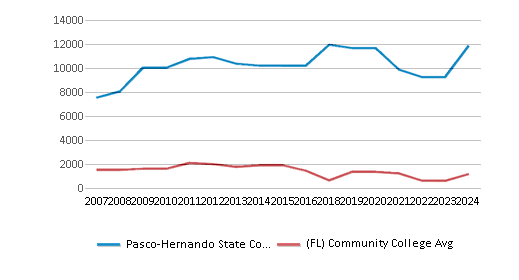
Student : Teacher Ratio
19:1
20:1
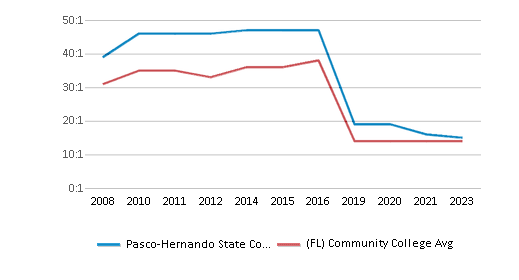
# Full-Time Students
4,623 students
587 students
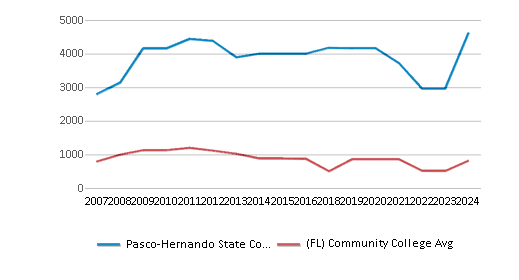
# Part-Time Students
7,222 students
557 students
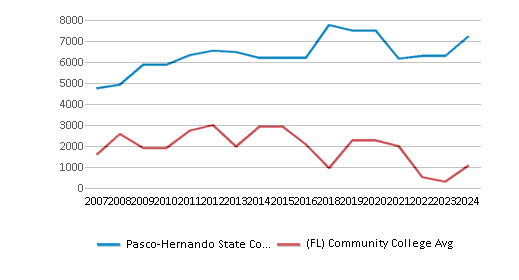
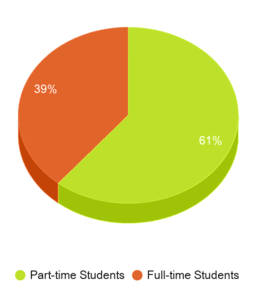
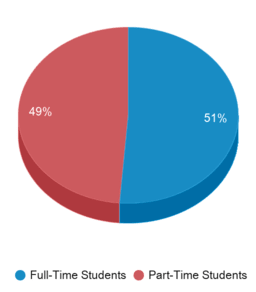
# Enrollment Undergraduate
118 students
261 students
# Full-Time Undergraduate Students
4,623 students
574 students
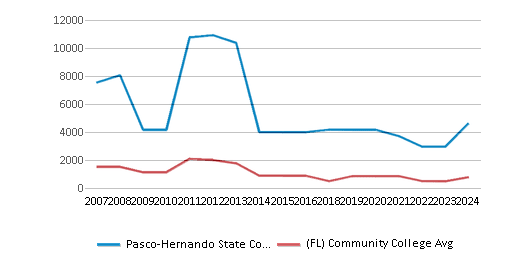
# Full-Time Graduate Students
n/a
85 students
# Part-Time Undergraduate Students
7,222 students
648 students
# Part-Time Graduate Students
n/a
36 students
Total Dormitory Capacity
n/a
174 students
% American Indian/Alaskan
n/a
n/a
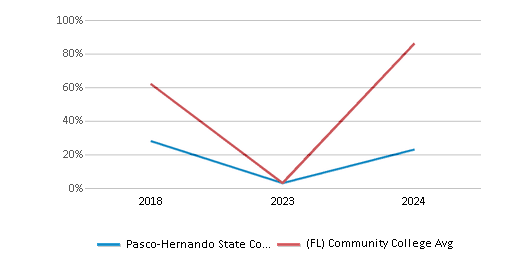
% Asian
3%
5%
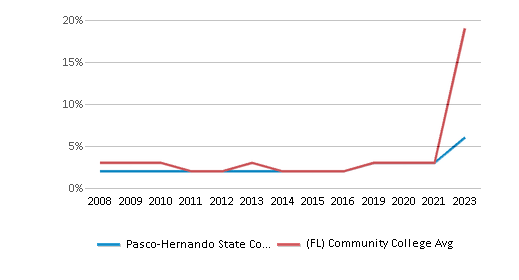
% Hispanic
22%
30%
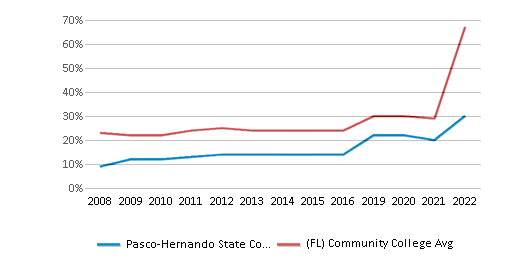
% Black
6%
19%
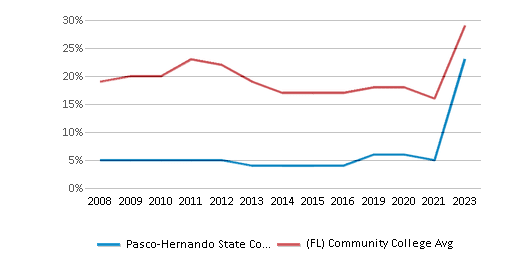
% White
54%
33%
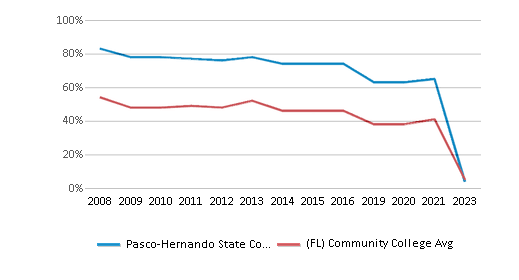
% Hawaiian
n/a
2%
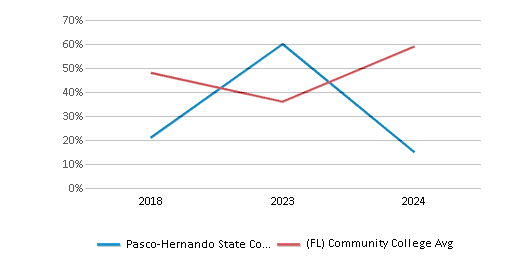
% Two or more races
4%
4%
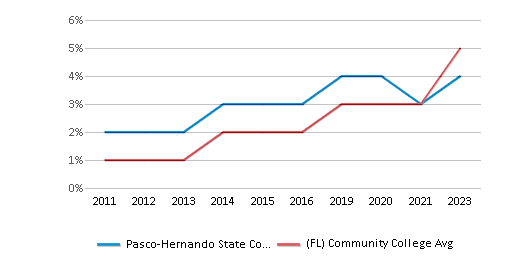
% Non Resident races
n/a
2%
% Unknown races
9%
5%
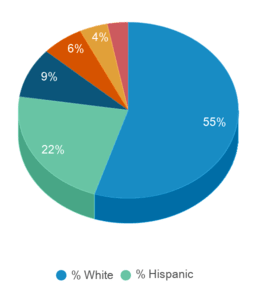
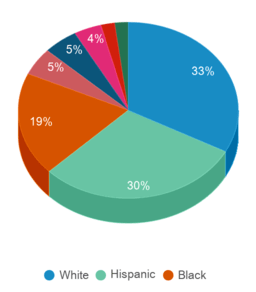
Diversity Score
0.65
0.76
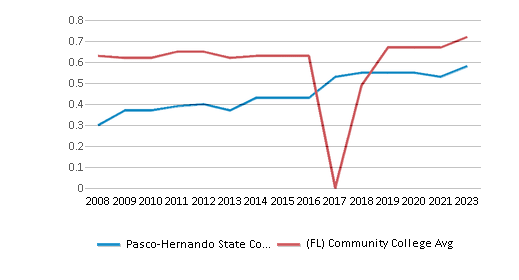
College Completion Rate (Students who graduate in less than 4 years)
36%
56%
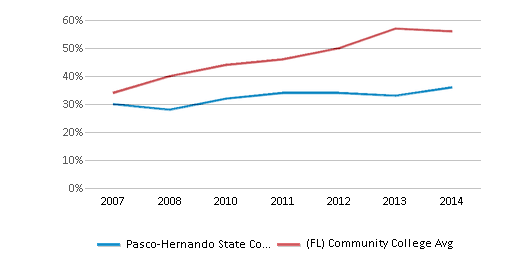
College Completion Rate (Students who graduate in 4 years or more than 4 years)
0.3625%
0.4334%
Average Graduate Earnings (10 Years)
$32,000
$31,500
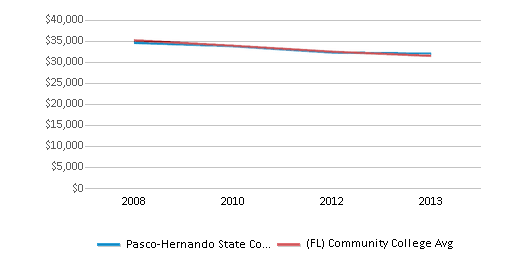
Tuition and Acceptance Rate
The public in-state tuition of $3,095 is less than the state average of $3,280. The in-state tuition has stayed relatively flat over four years.
The public out-state tuition of $11,792 is more than the state average of $10,578. The out-state tuition has stayed relatively flat over four years.
In-State Tuition Fees
$3,095
$3,280
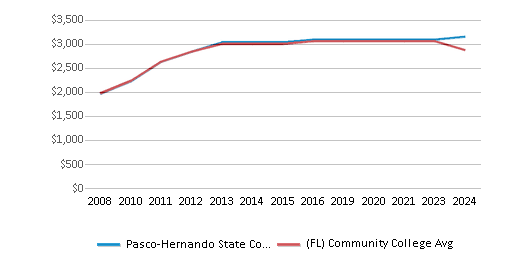
Out-State Tuition Fees
$11,792
$10,578
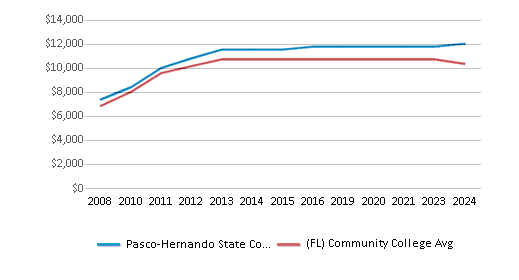
Tuition Notes
Proof of 1 year res
% Students Receiving Some Financial Aid
60%
88%
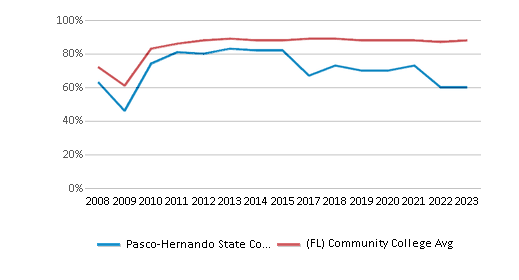
Median Debt for Graduates
$10,286
$9,750
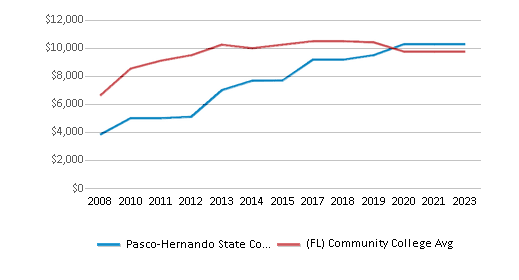
Median Debt for Dropouts
$5,500
$5,500
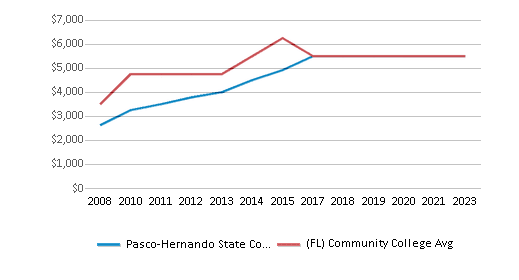
Acceptance Rate
n/a
94%
SAT Reading
n/a
442
SAT Math
n/a
429
ACT Composite
n/a
18
ACT English
n/a
18
ACT Math
n/a
18
Source: 2024 (or latest year available) Integrated Postsecondary Education Data System (IPEDS) , School Administrators
School Notes
- As Florida's newest community college, Pasco-Hernando Community College combines high tech educational facilities and state-of-the-art programs with an old-fashioned focus on teaching. With campuses located in tree-lined, intimate, rural settings, PHCC provides all the advantages of a private liberal arts education' personalized attention, highly credentialed faculty, an honors program for the academically gifted and small class sizes ' all at an affordable public community college price. Our AA degree program gives students a solid foundation in the arts and sciences with a choice of major emphasis in teaching, business, engineering and the social and behavioral sciences. Our AA degree even comes with a guarantee: guaranteed admission into one of Florida's 11 public universities as a junior. PHCC also provides training for more than 30 high-demand careers in healthcare, law, business, and human services through its AS and certificate programs. Our technical programs are designed and taught by experts in their field using the latest equipment and technology. These fields include business, computer engineering, healthcare, human services and law. PHCC programs can be completed in two years or less. Ninety percent of all PHCC graduates end up working in their chosen professions. At PHCC, we offer educational opportunity for students of all ages and abilities. Our 'Open Door' policy welcomes all high school graduates and GED recipients. PHCC also offers GED preparation classes to prepare students to test for the GED diploma. Because PHCC is a public-supported state institution, its fees are generally lower than many other colleges and universities. Approximately 60 percent of all PHCC students receive some form of financial assistance based on financial need and/or merit. PHCC offers day, evening, weekend and online classes for the convenience of working adults. We have four nearby locations to serve you in Brooksville, Dade City, New Port Richey and Spring Hill. Pasco-Hernando Community College is accredited by the Commission on Colleges of the Southern Association of Colleges and Schools to award the Associate Degree.
Frequently Asked Questions
How much does Pasco-Hernando State College cost?
Pasco-Hernando State College's tuition is approximately $3,095 for In-State students and $11,792 for Out-State students.
What schools are Pasco-Hernando State College often compared to?
Pasco-Hernando State Collegeis often viewed alongside schools like Hillsborough Community College by visitors of our site.
What is Pasco-Hernando State College's ranking?
Pasco-Hernando State College ranks among the top 20% of community college in Florida for: Largest student body.
Recent Articles

Obtaining Your Bachelor's Degree at a Community College
Explore the evolving landscape of community colleges offering bachelor's degrees, addressing affordability, accessibility, and workforce needs.

A to Z of Community College Certificates and Courses
From business and healthcare to technology and skilled trades, the article showcases the breadth of options available to students seeking to enhance their knowledge, develop new skills, or pursue career advancement.

What is a Community College?
This comprehensive guide explains what a community college is, its history, and its role in higher education. It covers the types of programs offered, differences from four-year colleges, benefits of attending, and important considerations for prospective students, providing valuable insights for those exploring educational options.







